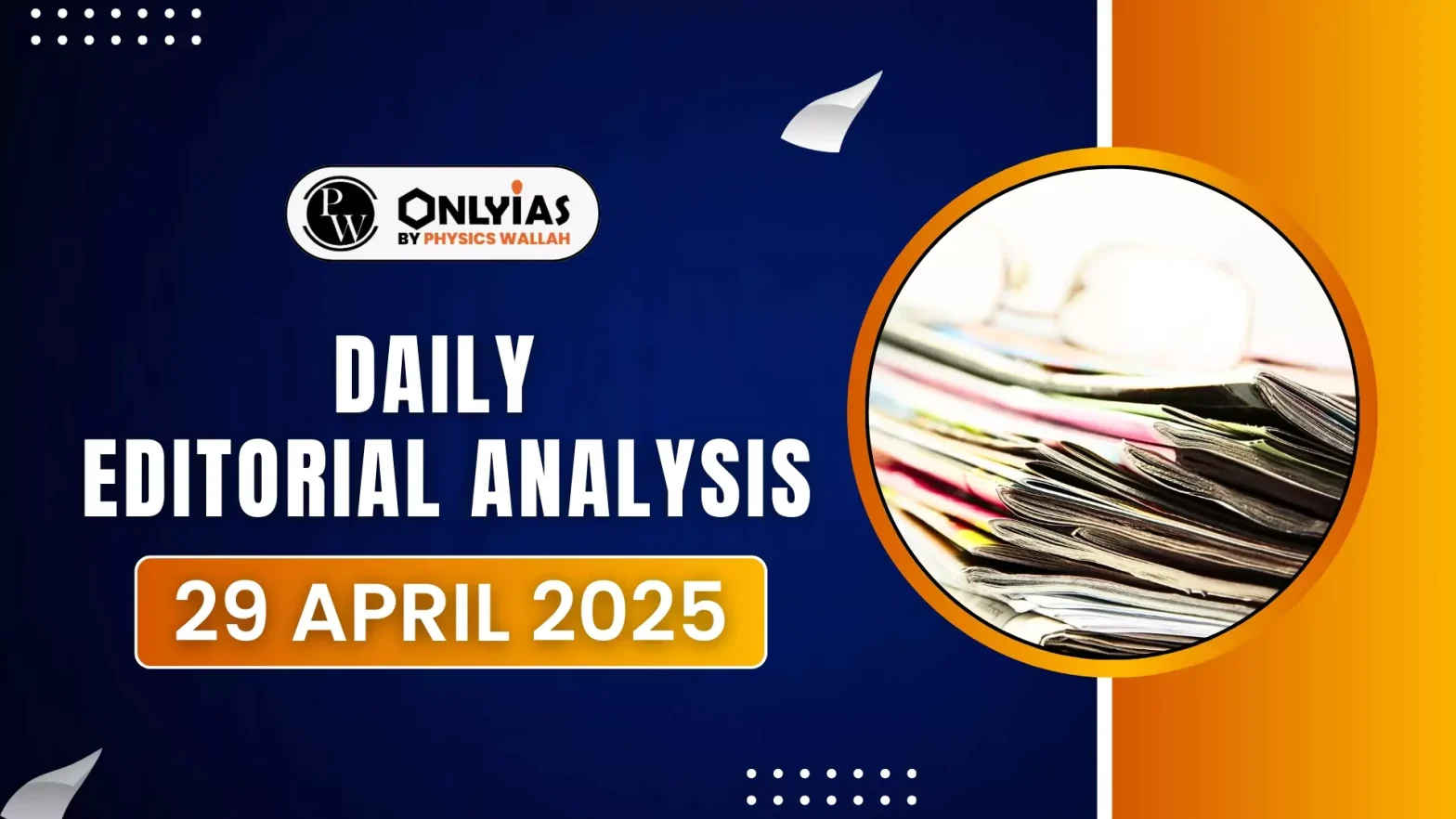Prolonged vacancy of the Deputy Speaker’s office during the 17th and 18th Lok Sabha represents a serious constitutional anomaly
Constitutional Basis of the Office
- Article 93: The House of the People shall, as soon as may be, choose two members of the House to be respectively Speaker and Deputy Speaker. The expression “as soon as may be” indicates urgency, not discretion.
- Mandate: The Office of the Deputy Speaker of the Lok Sabha is not a ceremonial role but a constitutional imperative.
- Role of Deputy Speaker: The Office of Deputy Speaker is not merely a ceremonial seat. It is a constitutional imperative designed to ensure the continuity, stability, and procedural integrity of the Lok Sabha.
Historical Evolution of the Office of Deputy Speaker
- Colonial Origins; The post dates back to the British period, under the Central Legislative Assembly, where it was called the Deputy President. The first holder was Sachidanand Sinha in 1921.
- Relevance: Before the adoption of the Constitution in 1950, the Constituent Assembly (Legislative) retained the position, underlining its importance.
- The first elected Deputy Speaker of independent India was M.A. Ayyangar.
- Following the sudden death of Speaker G.V. Mavalankar in 1956, Ayyangar served as Acting Speaker, reinforcing the role’s importance in crisis continuity.
Relevance of Deputy Speaker in Parliament
- Ensuring Procedural Continuity: As articulated by constitutional expert S.C. Kashyap, the Speaker cannot preside over all sittings continuously.
- The Deputy Speaker, therefore, acts as a vital constitutional functionary, stepping in to ensure the uninterrupted conduct of parliamentary proceedings.
- Beyond Procedural Backup: The Deputy Speaker’s role is not limited to substituting the Speaker; they are empowered to chair significant sessions, preside over select parliamentary committees, and oversee sensitive debates requiring procedural neutrality.
- Symbol of Bipartisan Norms: A well-established parliamentary convention though non-binding is to offer the Deputy Speakership to the Opposition, reinforcing institutional balance and cross-party cooperation.
- Strengthening Non-partisan Ethos: The tradition of an Opposition Deputy Speaker reinforces the non-partisan character of the Speaker’s office.
- This promotes consensus-based functioning and upholds the neutral character of the presiding authority.
- Post to the Opposition: Though not legally binding, there is a long-standing convention of offering the Deputy Speaker’s position to the Opposition. This:
- Promotes bipartisanship
- Builds trust and cooperation
- Upholds the non-partisan ethos of parliamentary functioning
- Misreading: Although Article 93 does not specify a timeline, interpreting “as soon as may be” as “whenever convenient” is a clear misreading of constitutional intent.
Implications of the Prolonged Vacancy
- Institutional Disruption: The continued absence Undermines constitutional safeguards, Centralises power within the Speaker and ruling party. It eliminates procedural redundancy, essential in emergencies.
- In the event of resignation, removal, or death of the Speaker, the lack of a second-in-command could cause leadership uncertainty in the House.
- Parliamentary Conventions: Not filling the post reflects a broader disregard for parliamentary norms and the erosion of consensus politics.
- An active marginalisation of the Opposition. The argument of “no urgency” contradicts the very spirit of constitutional democracy.
Way Forward
- Time-Bound Election: Set a mandatory time frame for electing the Deputy Speaker. A specific deadline, for instance, within 60 days of the first sitting of the new Lok Sabha could close this loophole of delay and warrant compliance
- Statutory Empowerment for Executive Action: Introduce legislation enabling the President to initiate the election process upon the advice of the Prime Minister or the Speaker, ensuring institutional accountability for delays.
- Reasserting Constitutional Discipline: The Deputy Speaker’s office is a constitutional mandate. It is essential for legislative continuity and integrity
Conclusion
It is time for Parliament to reaffirm its respect for constitutional norms and institutional integrity. Electing a Deputy Speaker is not just a formality, it is a test of the House’s commitment to rule-based governance. India’s Parliament must not fail this test any longer.
![]() 29 Apr 2025
29 Apr 2025

